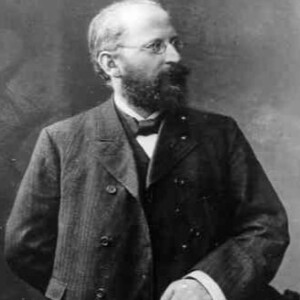
Clearing up a confusion about socialism that somehow, still exists 120 years later.
DEAR COMRADE, In your report on my lecture, What Marx Really Taught (Justice, No.632, page 8), there occurs the following passage, “Engels had overstated the condition of society, but Marx’s theory, for all that, holds good all the time.” From this the reader might conclude that I presented the co-founder of the theory of historical materialism as having been less conscious in applying the theory than Marx himself. No idea could be farther from me than this. What I said in this respect was literally the following:–
“But it cannot be denied Engels himself has, in one of his last publications, expressly stated that Marx and he in 1848 and 1849 greatly over-estimated the state of industrial evolution attained. They believed the breakdown of bourgeois civilization within hail, if, however, to be worked out in a prolonged series of revolutions. And in their over-estimation of the actual state of social evolution, they did not materially differ from other Socialists of the time.” (Here I gave one example, and then I added): “But we have to distinguish between the social and historical doctrines of Marx and their practical application. In appreciation of actual facts we are always subject to error, and may have continuously to correct ourselves, whilst our theory holds good all the time.”
From this it is clear that nothing was further from me than to criticise Engels whilst I was praising Marx. In doing so I should, in my opinion, have wronged the memory of both men. But I trust that your reporter has caught my words in their right meaning, and that only necessity to be short compelled him to give them a form which people not present might easily misinterpret.
The publication of Engels’s alluded to is his preface to a reprint of Marx’s Die Klassen-Kämpfe in Frankreich 1848 bis 1850. There, after having stated that he and Marx did not share the illusion of the average democrats of the time that the triumph of the people over its oppressors could be finally settled by one victorious revolution, that in their eyes a prolonged series of subsequent revolutions was required and that in 1849 only the first act was over, Engels adds:– “But history has also disavowed us, it has disclosed our own estimation is illusory. It has done more – it has not only destroyed the mistake we then were led by, it has also completely revolutionised the conditions of the struggles of the proletariat. The 1848 methods of fighting are to-day obsolete in every respect.”
Engels, then explains their, Marx’s and his own, mistake – viz, the idea that the triumph of the proletariat after all was within hail, that the bourgeoisie, once settled as the dominant class, the next great crisis must bring about a revolution, the end of which could hardly be other than the triumph of the proletariat. “History,” he continues, “has decided against us, and against all those who hold similar ideas. It has shown clearly that the state of industrial evolution attained on the continent was by far not complete enough to make the abolition of capitalist production possible.” And, more than this, if even the organised worker of to-day – “if this mighty army of the proletariat has still not yet arrived at the goal, if even this army, far from attaining at the triumph by one great stroke, must in prolonged tenacious struggle, slowly advance from position to position, it is proved, once for all, how impossible it was in 1848 to conquer social revolution by simple surprise,” and that “the time of surprise, the time of revolutions carried by small conscious minorities leading unconscious masses, has passed. Where a complete revolution of the organisation of society is in question the masses themselves must be engaged, they must have realised what is aimed at, for what they have struggled. To make the masses understand what is to be done long and continuous work is required.”
So far Engels, The whole article is highly instructive, and, in my opinion, well worth translating. There are a few more passages in your report which lend themselves to misunderstanding. But they do not call for an immediate rectification
– With thanks in anticipation, yours sincerely,
Ed. Bernstein
No comments yet. Be the first to say something!